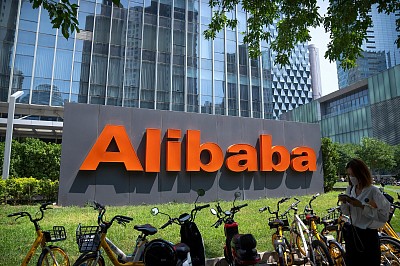10 Secrets About Alibaba’s Pakistan Presence You Didn’t Know
Alibaba Acquired Daraz to Enter the Market Quietly
When most people think of Alibaba, they imagine massive factories in China, e-commerce giants, or even Jack Ma himself. But did you know that Alibaba’s influence stretches far beyond Chinese borders—and right into Pakistan?
In recent years, Pakistan has emerged as a key market for Alibaba’s expansion, and while much of this activity flies under the radar, there’s plenty happening behind the scenes. From business partnerships to tech infrastructure and training initiatives, Alibaba is quietly but powerfully shaping the digital future of Pakistan.
Here are 10 lesser-known facts about Alibaba’s presence in Pakistan that might just surprise you.
1. Yes, There Is an Alibaba Office in Pakistan
Many people still ask: Is there an Alibaba office in Pakistan? The answer is yes.
Alibaba’s official footprint in Pakistan began taking shape after it acquired Daraz.pk in 2018. Although Daraz is a separate platform, its operations are fully backed by Alibaba’s systems, policies, and technology.
Since then, Alibaba has opened regional support and technology offices across Pakistan—mainly in Karachi and Lahore—where teams work on platform development, seller support, and digital logistics. While these offices may not carry giant Alibaba logos, they operate under its corporate umbrella through subsidiaries like Daraz and Alibaba Cloud.
2. Alibaba Acquired Daraz to Enter the Market Quietly
Rather than launching a new brand from scratch, Alibaba entered Pakistan by acquiring Daraz, a homegrown e-commerce site originally developed by Rocket Internet.
This smart move allowed Alibaba to build on an existing user base and seller network. Today, Daraz operates with Alibaba's technological backbone, using AI tools, logistics models, and marketing strategies refined in China.
3. Alibaba’s Cloud Services Are Active in Pakistan
While e-commerce is the visible face of Alibaba, its real strength lies in data and cloud computing. Alibaba Cloud is quietly making moves in Pakistan’s enterprise and IT sectors.
Local tech companies and startups can now access Alibaba Cloud services—ranging from data analytics to cybersecurity solutions—giving them affordable alternatives to services like AWS or Microsoft Azure. This is a game-changer for Pakistani businesses trying to scale up without investing in expensive infrastructure.
4. Sellers in Pakistan Export to Global Markets via Alibaba
Thousands of Pakistani manufacturers—especially those dealing in textiles, sports goods, surgical instruments, and leather products—use Alibaba.com to reach buyers in the US, Europe, and Middle East.
This isn’t just about uploading a few product photos. Alibaba offers seller training, translation tools, pricing support, and even logistics advice to Pakistani exporters.
For cities like Sialkot, which is known for its high-quality exports, this means global reach without needing a physical storefront abroad.
5. NJ Dynamic Solution in Sialkot Partners with Alibaba Sellers
One of the rising stars in this ecosystem is NJ Dynamic Solution, a tech and e-commerce consultancy based in Sialkot. The company specializes in helping local businesses set up successful storefronts on platforms like Alibaba and Amazon.
With a growing portfolio of clients, NJ Dynamic Solution is playing a critical role in educating local manufacturers about global standards, digital marketing, and order fulfillment—all aligned with Alibaba’s best practices.
If you’re a business owner in Punjab looking to go digital, their office in Sialkot is worth visiting.
6. Alibaba Trains Small Businesses in Digital Skills
Alibaba doesn’t just offer a platform; it empowers users with knowledge. Through Daraz University and Alibaba Global Initiatives, the company offers free online courses for Pakistani entrepreneurs.
These resources cover everything from product photography to customer service to pricing strategy—essential skills for anyone hoping to make it big online.
7. Payment Solutions Are Evolving
One challenge for international platforms in Pakistan has always been payments. But Alibaba is tackling this, too.
In partnership with Easypaisa and JazzCash, Daraz and Alibaba platforms now allow easier digital payments and wallet integration. This is opening doors for both customers and sellers in smaller towns and cities.
8. Alibaba Is Testing Drone Delivery Tech in Asia—Pakistan Could Be Next
Alibaba is piloting drone delivery in some parts of Asia, especially in rural or hard-to-reach areas. While this tech isn’t in Pakistan yet, insiders suggest that pilot projects are being considered for parts of Punjab and Khyber Pakhtunkhwa.
Given Pakistan’s logistics challenges, drone delivery could radically transform rural e-commerce in the next few years.
9. Alibaba Helps Pakistani Women Entrepreneurs
Alibaba’s digital ecosystem is opening new avenues for women-led businesses. Daraz features special campaigns during local festivals, promoting women-owned brands.
Additionally, NGOs and private partners collaborate with Alibaba to provide funding and training for women entrepreneurs across the country.
10. Pakistan Is a Growing Market in Alibaba’s Global Strategy
Pakistan is the fifth most populous country in the world, with a rapidly growing youth demographic. Alibaba’s investments here aren’t just charity—they’re part of a long-term plan.
With rising smartphone usage, digital literacy, and entrepreneurial interest, Pakistan is becoming a strategic market for Alibaba’s e-commerce and cloud businesses. Expect more partnerships, job creation, and investment in years to come.
Final Thoughts
The presence of an Alibaba office in Pakistan may not be loud or obvious—but it’s very real, and very impactful. From empowering exporters in Sialkot to streamlining digital payments and supporting local training programs, Alibaba is helping reshape how business is done in Pakistan.
As companies like NJ Dynamic Solution continue helping businesses navigate these changes, the future of e-commerce in Pakistan looks brighter than ever.

